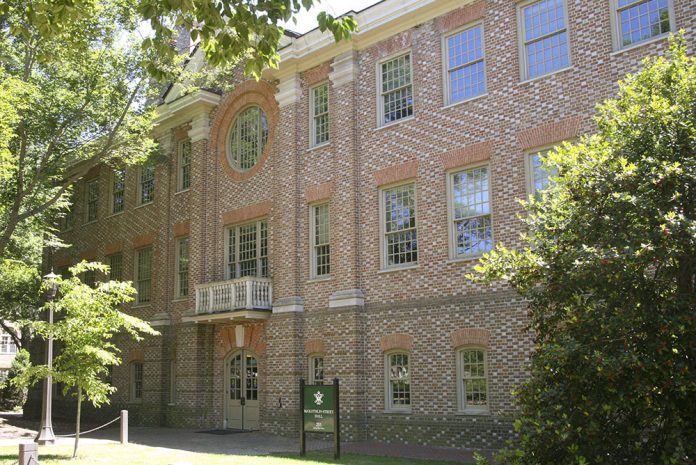The College of William and Mary will be offering a Bachelor of Science degree in data science beginning fall 2020 after receiving state approval March 9. Students have been able to study data science at the College since 2017 with the creation of the Data Science Program and an academic minor in data science. Since then, student interest in the program has increased and demand for data science courses has steadily risen, motivating the option for data science major on campus.
The data science major has been in the works for well over a year with different levels of approval needed at the faculty, Board of Visitors and state levels. Associate Provost for Institutional Accreditation and Effectiveness Susan Bosworth played an important role in facilitating communications to ensure the internal approvals were completed. She discussed her responsibility with the College’s Institutional Change Policy.
“I’m involved as soon as the faculty contact me and then they have to go through an institutional change form,” Bosworth said. “That form is reviewed by probably 30-35 offices on campus to make sure there are no unintended consequences. A lot of people are involved in looking at a program.”
Bosworth also described the intensive process of getting new majors approved by the State Council on Higher Education for Virginia.
“We started that process by submitting a proposal last March of 2019, and the State Council works with institutions so that we need to show that there is a need for such a program, that we have the resources, the facilities, appropriate faculty, so we have to show a lot of information,” Bosworth said.
“We started that process by submitting a proposal last March of 2019, and the State Council works with institutions so that we need to show that there is a need for such a program, that we have the resources, the facilities, appropriate faculty, so we have to show a lot of information.”
The data science steering committee was also integral to the degree program. Applied sciences professor Dan Runfola served as a member and is the founder and inaugural director of the Data Science Program, which is now led by biology professor Matthias Leu.
Runfola explained that, when it came to determining a need for a data science B.S., there was little debate about whether there was sufficient need and value in offering the degree.
“We have around 100 students enrolled in DS Self Designed Majors or Minors already – so, interest isn’t really a hypothetical, it’s already here,” Runfola said in an email.
Runfola also emphasized that creating the degree program was more than just getting the paperwork and appropriate signatures. Making sure the program had the proper capacity for students was also a challenge.
“We have had to create a lot of new courses – something around 20 as of last count – to support the major,” Runfola said. “This has necessary implications for resources – i.e., if faculty are designing a course for Data Science, that same faculty member probably isn’t designing a GOVT course at the same time. We were fortunate that the State of Virginia decided to make large investments in the area of Data Science around the same time as we founded the program, which allowed for targeted hires in this space without detracting from any of our other ongoing curricular offerings.”
In the past, computer and data science courses at the College have been in high demand, with departments and professors seeing high numbers of override requests for each section. Runfola recognized that capacity is a concern and said that it is being addressed. He detailed the efforts going into hiring new faculty, but also recognized the process may be slowed by challenges presented by the ongoing COVID-19 outbreak.
“We have a number of faculty searches ongoing or planned,” Runfola said. “It is unclear how many of these will move forward given the global crisis, or when they may move forward, but the university has been very supportive in helping us grow capacity for courses students illustrate interest in.”
The program will offer three specific tracks to focus on: data analytics, spatial data analysis and computation.
“We are encouraged that SCHEV recognizes William & Mary as the appropriate space to offer this new degree, which promises to increase the commonwealth’s workforce capabilities.”
“Each will give students a very different specialization – i.e., the Data Analytics track has upper-level courses focused on applications in deep learning; spatial data has courses focused on satellite imagery; computation has courses from CSCI that focus on more basic computational optimization,” Runfola said.
After extensive preparation, the College is excited for students to have the opportunity to pursue a Bachelor of Science in data science. In an announcement of the degree program’s launch, College Provost Peggy Agouris expressed her confidence in the new opportunity.
“We are encouraged that SCHEV recognizes William & Mary as the appropriate space to offer this new degree, which promises to increase the commonwealth’s workforce capabilities,” Agouris said.
Runfola pointed out that seeking out a data science degree in the current job market can be a fruitful venture.
“I’ll also say this: graduates of the program seem to be doing very well on the job market – the combination of a liberal arts education with the practical and analytic skills of Data Science seems to be resonating on the market,” Runfola said.

